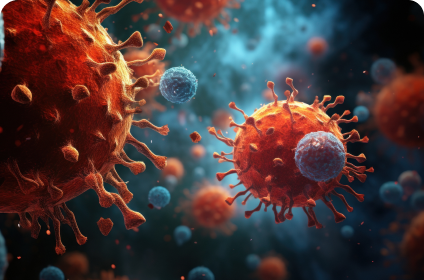Early Detection for Better Cancer Outcomes
Cancer screening involves tests and procedures designed to detect cancer at an early stage, often before symptoms appear. Early detection increases treatment success rates and improves survival outcomes. Screening recommendations are based on age, risk factors, and family history to ensure timely and appropriate evaluation.
Regular cancer screening helps in:
Different screening tests are used for various types of cancer, including:
Thermal mammography, or thermography, is a non-invasive breast cancer screening method that uses infrared imaging to detect temperature variations in breast tissue. These variations may indicate abnormalities or early cancerous changes.
Cancer screening follows a structured approach for accuracy and effectiveness:
Screening is recommended based on age, gender, family history, and risk factors. Consult your doctor for personalized screening recommendations.
No, thermal mammography is a complementary tool that enhances early detection, especially in dense breast tissue, but does not replace traditional mammography.
Screening frequency depends on age, medical history, and doctor recommendations. High-risk individuals may need more frequent screenings.

Bone marrow aspiration and biopsy procedures for diagnosing blood disorders, leukemia, and other cancers with precision and expert analysis.

Harnessing the body’s immune system to fight cancer, immunotherapy enhances survival rates with fewer side effects compared to traditional treatments.

Offering life-saving bone marrow transplants for leukemia, lymphoma, and blood disorders, ensuring expert care and high success rates.

Oncologist & Hematologist


MD Medicine (AIIMS) DM Medical Oncology (AIIMS) MRCP (UK), DNB, ECMO
Medico Oncologist & Hemato Oncologist

Indian Cancer Treatment Centre, unit of Sky Oncology LLP is a leading institution established with the aim to provide the best cancer treatment, to all types of cancer patients, in accordance with the latest and ever-changing advances in the field of oncology and provide the best cancer care